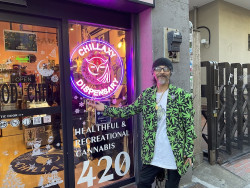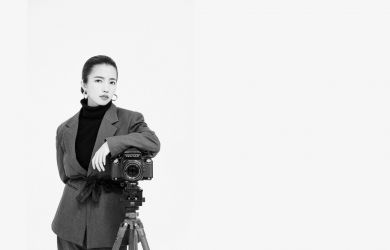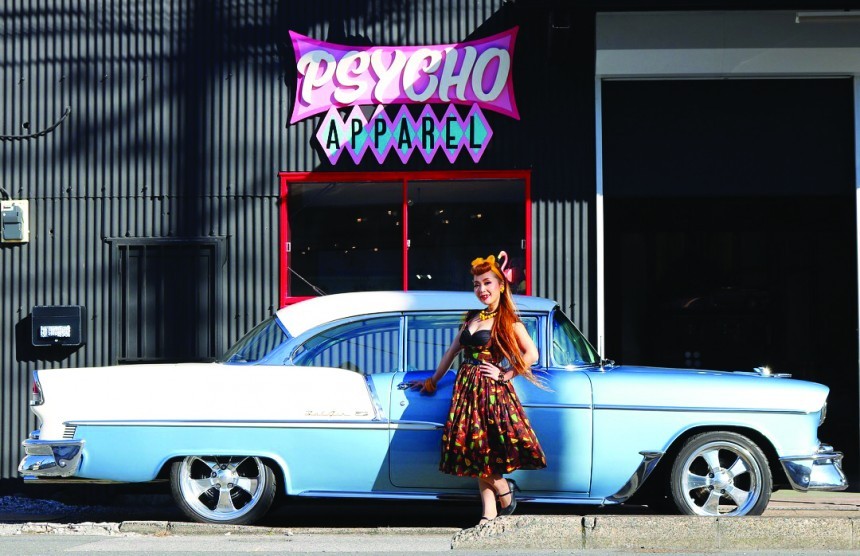
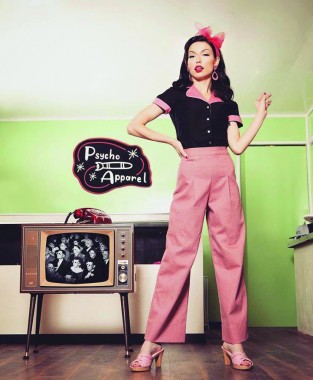
Blue eyes gaze out from under a glossy jet-black fringe. She smiles unreservedly, her eyebrows raised. She is American model Bettie Page, Queen of Pinups, and while her risqué photos were both revered and reviled during her 1950s modeling heyday, they would go on to inspire decades of modern pinup girls with their unadulterated portrayal of sexual empowerment. One person they weren’t lost on was Kasumi Yoshino, fashion designer and owner-operator of leading Japanese rockabilly fashion store Psycho Apparel.
“When I was maybe eighteen or nineteen I fell in love with Bettie Page,” Yoshino laughs. “She is our forever-pinup icon.” When she shows me pictures of Page on her iPhone, I can see exactly what she is talking about. Page, dressed in black lingerie, her shoulders pushed back and legs curled over a nondescript couch in a bygone era, is the picture of feminine confidence. She demands not only your gaze but something else too — acknowledgement. “I am a woman and I am here,” she seems to say, looking up at us from the glowing screen. “She is so sweet, so classic,” the designer sighs.
We’re sitting at a gorgeous orange art deco table in the Psycho Apparel shop, which also doubles as Yoshino’s workroom. Stepping into Psycho Apparel — surrounded by playful ‘50s fashion, the twang of old rockabilly music, and copious retro paraphernalia — is like entering another world. The sensation is heightened by the quiet residential streets of Saitama’s Kawaguchi neighbourhood still visible outside.
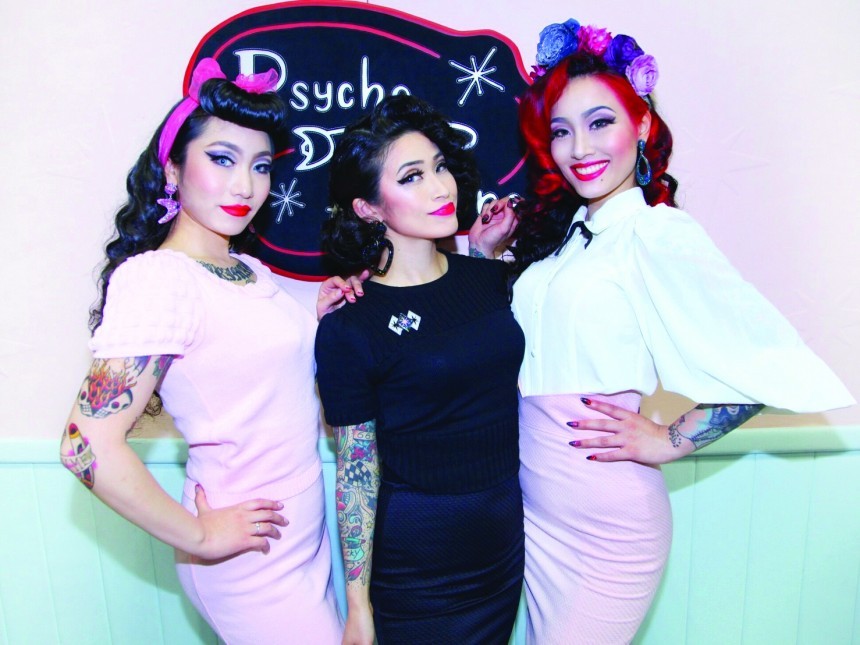
“We are inspired by mid-century style. I love ‘50s style but my husband loves ‘70s lowrider style,” Yoshino explains. ‘The ‘50s and ‘70s are so different but we want to mix [them].” All of the upholstery in the shop is designed and made by Yoshino’s husband Kazu, whose Kustom studio BASTARDS is directly connected to Psycho Apparel. “He does painting and upholstery and I do sewing and drawing,” she says, describing the decision to relocate from Shimokitazawa in May 2016 to be closer to her husband. ‘Tokyo is too small and very crowded. We can’t work there because we need a big space, so we moved here and now I feel happy every day.”
Initially Psycho Apparel only stocked international labels, primarily from the spiritual home of rockabilly, the U.S. It wasn’t until four years ago, after noticing a critical gap in the market, that Yoshino started making her own designs. “Japanese people are very skinny, so they can’t wear [American styles] as well,” she says. “I thought if I designed pinup style clothing it’s better than overseas clothing.” She successfully launched her original line in 2015, releasing a new collection of fun ‘50s styles every season.

Of course Psycho Apparel doesn’t just cater to petite frames; it stocks sizes XS through to XXXL. Yoshino is adamant that women of all ages, races and body types should be trying pinup fashion. “Every girl can wear this style. It’s so generous and timeless I think.” Her customers, who are also her friends, smile down at us from the many photos covering the walls. She points to one of them, a stunning pinup girl with fiery orange hair. “She’s around 50,” she says, “my oldest customer is maybe around 60 years old. She is so gorgeous.”
With names like “Psycho” and “BASTARDS,” you might be forgiven for assuming that a visit to Kasumi and Kazu Yoshino’s joint studios would be a dark, intimidating affair. This couldn’t be further from the truth. “I think psycho is a good word. It’s funny and a little crazy and amazing clothing for ladies,” she laughs, “it’s not a scary word.” Ironically, it’s one that Bettie Page’s moralist detractors would probably have labeled her with sixty-five years ago.





